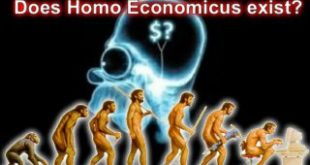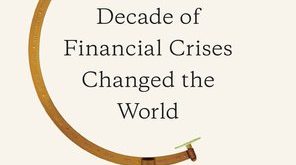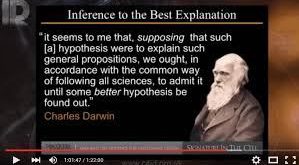The status quo of Economics ten or fifteen years ago was that paying $8 to see a revenge fantasy of a fictitious protagonist taking fictitious revenge on a fictitious bad guy who has fictitiously wronged him falls tightly under economists de-gustibus-non-est-disputandum sensibility, whereas a subject spending $8 to take real revenge on a real-life bad guy who has wronged the subject himself needed explaining. Looked at by an outsider not wedded to the assumption of 100%...
Read More »‘Auch unter Trump wird sich für uns wenig zum Besseren verändern’
Tooze: Viele Menschen, die Trump gewählt haben, sind der Überzeugung: Die Regierungen der vergangenen Jahrzehnte haben sich nicht um mich gekümmert. Damit haben sie sogar Recht. Jetzt ist da aber plötzlich jemand, der nimmt uns ernst. ZEIT ONLINE: Aber stimmt das wirklich? Nimmt Trump diese Menschen ernst? Tooze: Natürlich ist Trump in Wahrheit kein Interessensvertreter für die Stahlarbeiter im Rustbelt. Das zu glauben, wäre sehr naiv. Er mag eine Sympathie für diese Menschen...
Read More »Scientific realism and inference to the best explanation
Scientific realism and inference to the best explanation In a time when scientific relativism is expanding, it is important to keep up the claim for not reducing science to a pure discursive level. We have to maintain the Enlightenment tradition of thinking of reality as principally independent of our views of it and of the main task of science as studying the structure of this reality. Perhaps the most important contribution a researcher can make is to...
Read More »Top 20 heterodox economics books
Top 20 heterodox economics books Karl Marx, Das Kapital (1867) Thorstein Veblen, The Theory of the Leisure Class (1899) Joseph Schumpeter, The Theory of Economic Development (1911) Nikolai Kondratiev, The Major Economic Cycles (1925) Gunnar Myrdal, The Political Element in the Development of Economic Theory (1930) John Maynard Keynes, The General Theory (1936) Karl Polanyi, The Great Transformation (1944) Paul Sweezy, Theory of Capitalist Development...
Read More »Universitet och högskolor släpper igenom sämre studenter
Universitet och högskolor släpper igenom sämre studenter Krisen i den svenska skolan har nått högskolan. I dagens Kaliber berättar universitetslärare om studenter med låga förkunskaper, om krav som sänks och om ett ersättningssystem som ger mer pengar ju fler studenter som godkänns … Lars Pålsson Syll är professor i samhällskunskap och undervisar bland annat blivande lärare i statistik. Sedan han började undervisa för 30 år sedan har antalet...
Read More »Science’s brightest star just went out
Science’s brightest star just went out [embedded content] Advertisements
Read More »Abduction — the induction that constitutes the essence of scientific reasoning
Abduction — the induction that constitutes the essence of scientific reasoning In science we standardly use a logically non-valid inference — the fallacy of affirming the consequent — of the following form: (1) p => q (2) q ————- p or, in instantiated form (1) ∀x (Gx => Px) (2) Pa ———— Ga Although logically invalid, it is nonetheless a kind of inference — abduction — that may be factually strongly warranted and truth-producing. Following the general...
Read More »Keynes and econometrics
After the 1920s, the theoretical and methodological approach to economics deeply changed … A new generation of American and European economists developed Walras’ and Pareto’s mathematical economics. As a result of this trend, the Econometric Society was founded in 1930 … In the late 1930s, John Maynard Keynes and other economists objected to this recent “mathematizing” approach … At the core of Keynes’ concern laid the question of methodology. Maria Alejandra Madi Keynes’...
Read More »Adornokritik von Links
[embedded content] Die Waffe der Kritik kann allerdings die Kritik der Waffen nicht ersetzen Advertisements
Read More »Ricardian equivalence — nothing but total horseshit!
Ricardian equivalence — nothing but total horseshit! Ricardian equivalence basically means that financing government expenditures through taxes or debts is equivalent since debt financing must be repaid with interest, and agents — equipped with ‘rational expectations’ — would only increase savings in order to be able to pay the higher taxes in the future, thus leaving total expenditures unchanged. Why? In the standard mainstream consumption model — used in...
Read More » Lars P. Syll
Lars P. Syll









